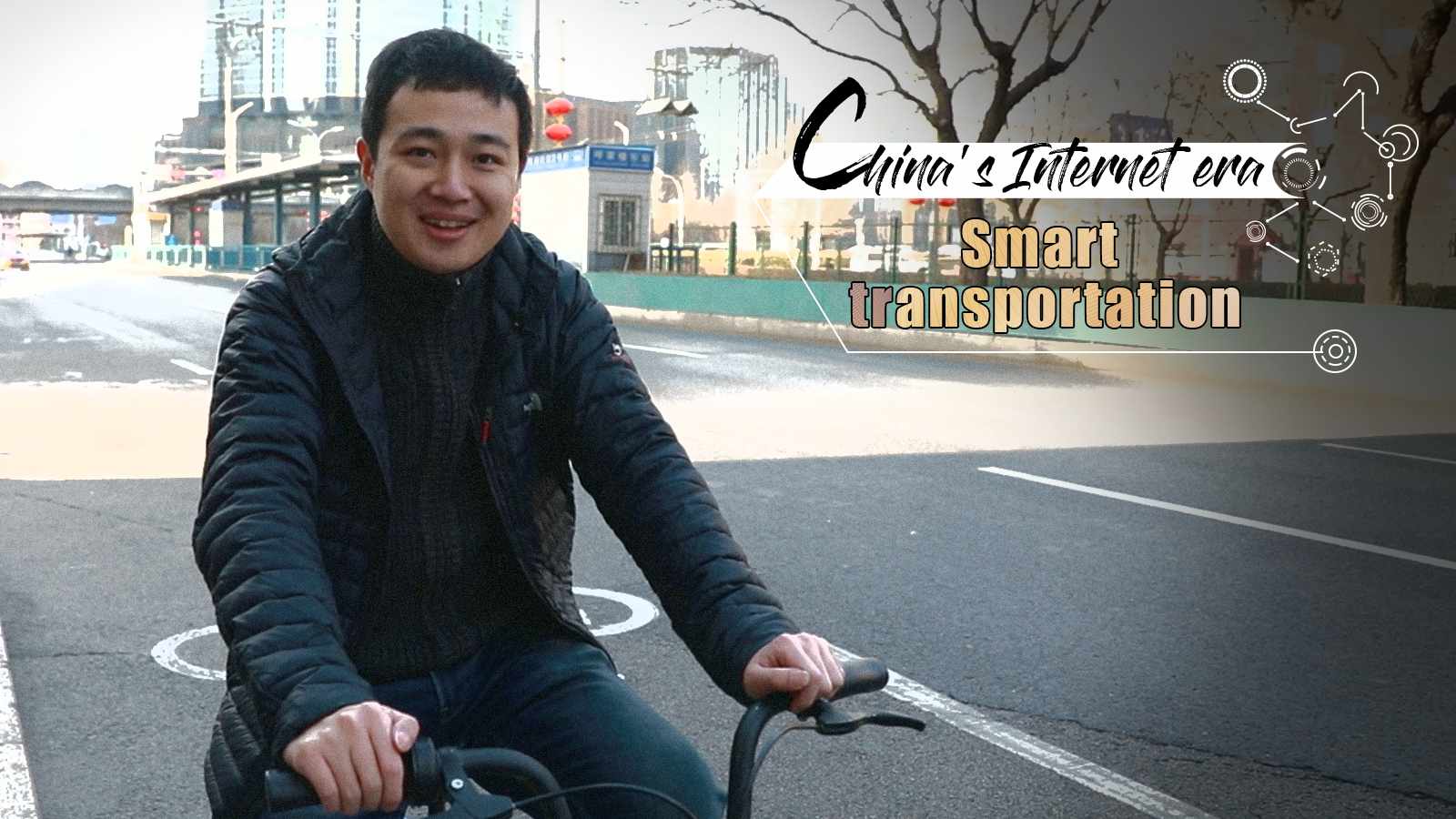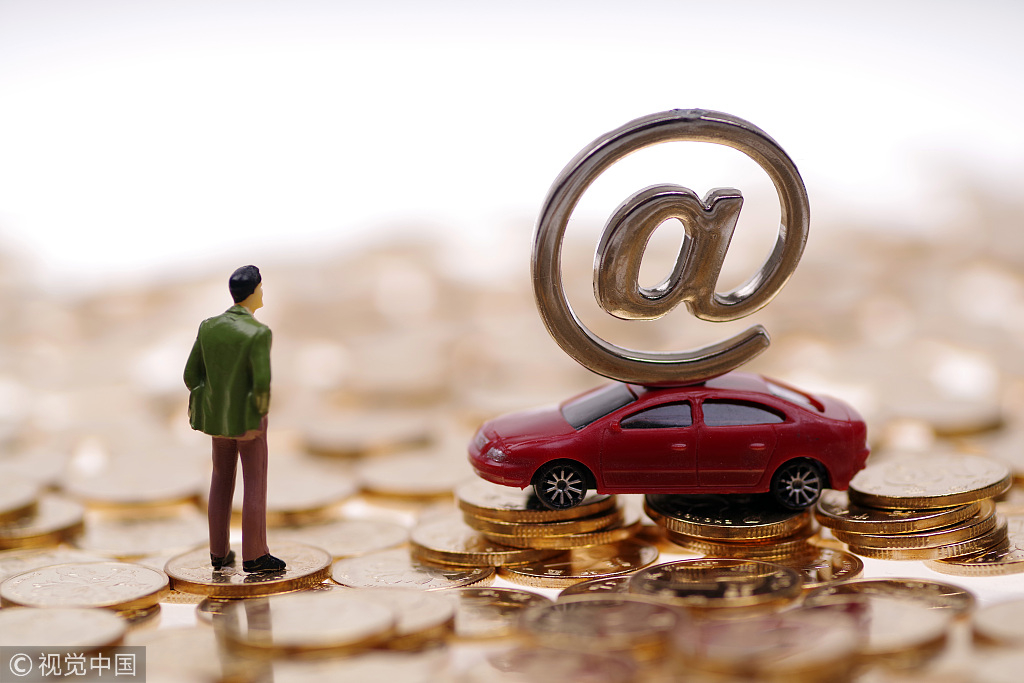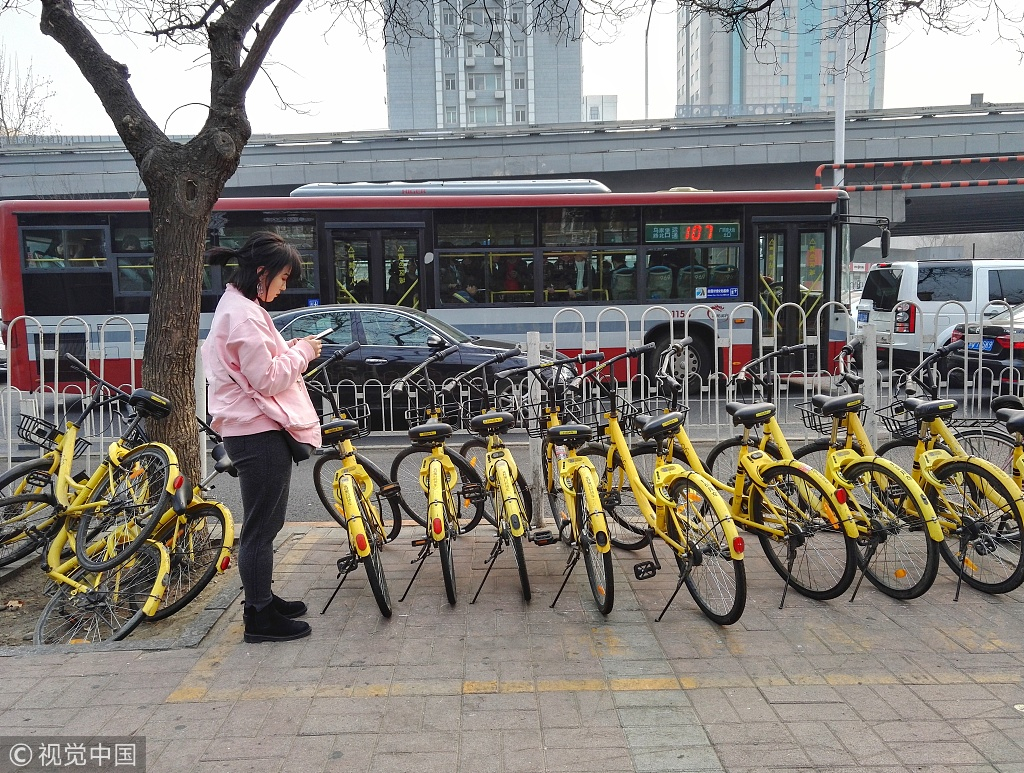
Technology
09:43, 10-Feb-2019
China's Internet era: Changing the way we commute
By Gao Yun
02:13

It's no doubt that the development of the Internet has greatly affected how we travel. People now have more mobility options, and can enjoy services which are more convenient, personalized, and cost-efficient.
There is easy access to services like online car-hailing and bike-sharing, which have saved time and energy.
"Now we have every possible travel concern taken care of, literally at the push of a button," said netizens.
According to iiMedia Reaserch, a Chinese data analysis agency focusing on new economic industries, China's users of mobile commuting reached 435 million in 2017.

Car-hailing service /VCG Photo
Car-hailing service /VCG Photo
"In 2018, DiDi Chuxing alone provided over 10 billion rides to 550 million people in 430 cities across the country with an average of more than 27 million times a day, increasing by about 40 percent annually over many years," Chen added.
With the changing structure of commuting, the online car-hailing service continues to get more development, as traditional urban transportation means cannot meet the modern person's needs of flexibility and mobility, the iiMedia Research predict.
The shared bicycle, another original Chinese transportation product was a "shinning star" in the sharing economy field in 2017, said the annual report jointly released by the Sharing Economy Research Center under the State Information Center and Working Committee of Sharing Economy of the Internet Society of China.

Shared bikes on the street in Beijing, China. /VCG Photo
Shared bikes on the street in Beijing, China. /VCG Photo
"The online car-hailing service is meeting the travel needs of different groups in different ways, and is becoming more and more popular among Chinese consumers," said Chen Qingtai, president of ChinaEV100, a NPO aimed at boosting the development of EV industry.
Scan the QR code in the app or other interfaces and users can unlock and use the bike anytime and anywhere as needed. It will charge one yuan (about 15 cents) per hour.
Over 23 million shared bicycles had been put into use by the end of 2017, according to the report, covering 304 cities in more than 20 countries with nearly 400 million registered users, and over 11.5 billion orders placed.
Besides its convenience, the development of shared bikes also drives the upgrade of the manufacturing technologies, including lightweight and integrated body design, intelligent locking mechanisms and special-structure tires, to name a few.
More than 300 patents have been made by bike-sharing companies, said the report.
The urban transportation pressure has been relieved, thanks to these alternatives.
The congestion delay index, a ratio of travel time was lowered from 1.77 in 2016 to 1.73 in 2017, said iiMedia Research. An overall ease of congestion in rush hours in 45 key domestic cities was seen in 2017, a decrease of 2.45 percent from that of 2016.

SITEMAP
Copyright © 2018 CGTN. Beijing ICP prepared NO.16065310-3
Copyright © 2018 CGTN. Beijing ICP prepared NO.16065310-3